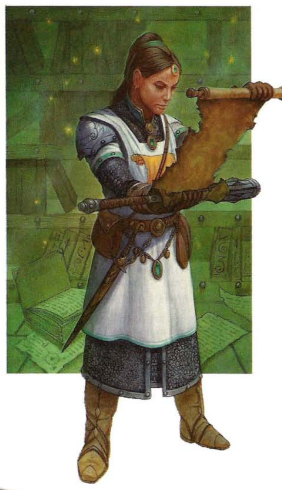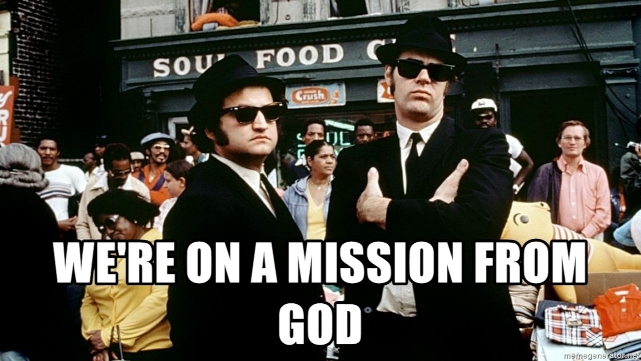Let's Read Neverwinter: Oghma's Faithful

Oghma is the Forgotten Realms god of knowledge and thought, occupying the roughly the same position as Ioun does in the default 4e setting. This particular PC is one of his worshipers, and for a while now they’ve been receiving dreams and visions from the god. These start as nightmares, but soon the threats are burned away by divine fire and the dreamer finds themselves in a grand hall where the sound of a water clock can be heard.
The meaning of these visions is clear: the faithful must go to Neverwinter and restore the House of Knowledge, a big temple to Oghma that was destroyed in the eruption. Neverwinter used to produce famously accurate water clocks, you see. This, and many of the city’s other lost craft secrets, could be restored from the temple’s archive, if it still survives. This would help the city’s reconstruction immensely, and of course bring the worship of Oghma back to the region in a big way.
This is about as lofty a goal as that of the Noble, though it’s much less concerned with secular politics. The Faithful is still going to need allies, and so has a ready-made reason to work together with any other PCs interested in restoring the city.
Oghma’s Faithful can belong to any race or class. Though the book says the theme fits divine characters better, the actual powers printed here surprisingly good for skill-monkeys from all power sources. Essentials Clerics can also pick up an Oghma domain, shown later. The theme’s background skills are History, Religion, and Streetwise.
Features
At level 1, the Faithful gains the Understand Language power, an encounter power that lets the PC choose a language they’ve heard or seen in the last 24 hours and become able to understand it until the end of the encounter. Outside of combat, that would be about 5 minutes, but as this is an encounter power you might as well consider the PC constantly able to understand that language during extended exploration sequences.
At level 5 the PC gains another power, Sudden Insight, which once per encounter lets them re-roll a skill check and take the second result. This is any skill, not just knowledge ones.
At level 10, they gain a +4 bonus to Perception checks made “to search”, which I guess means to actively search for something (such as traps, treasure, or the right book in the temple’s archive).
Utility Powers
As always, these become additional options when it’s time for the PC to choose utility powers.
Learned Response is a level 2 daily power that lets the PC use the result of an Insight check as their initiative for that combat. Even to me this feels a little too narrow in scope, but it does mean the low-Dex cleric will act much earlier once per day.
Bad Idea is a Level 6 encounter power which can be used as an interrupt when an adjacent creature attacks the PC. The PC slides the attacker 2 squares to another adjacent space, and inflicts a -2 penalty to its attacks and saves for a turn. Good for melee skirmisher-types like rogues or avengers. Clerics probably have something better to choose here from their class.
Tactical Inspiration is a level 10 encounter power that lets the PC shift 3 squares to be adjacent to an enemy as a move action, and also allow an ally within 5 squares to shift 3 squares for free. I could see a warlord or rogue taking this too, to help gain combat advantage earlier.
Impressions
This feels less spectacular to me than the Neverwinter Noble theme, as I’m not very enthusiastic about the FR pantheon. Mechanics-wise, it’s mostly about improving your skill checks, which can be awesome in the sort of campaign suggested by this book where you can have plenty of non-combat investigative and intrigue scenarios. It’s probably not going to do much for your combat effectiveness, though.
Multiple PCs with this background are very easy to accommodate in the same party, as they would all share a common cause and would have every reason to work together.
